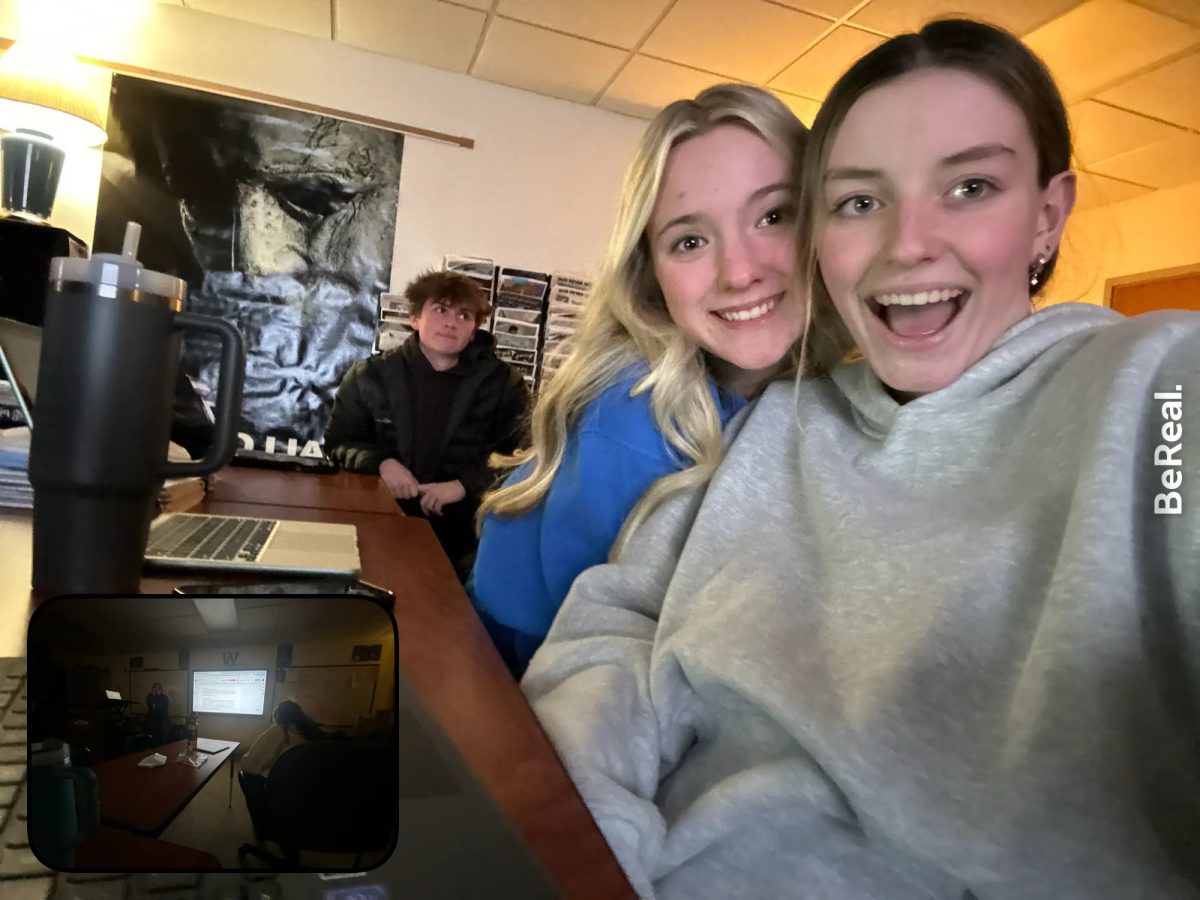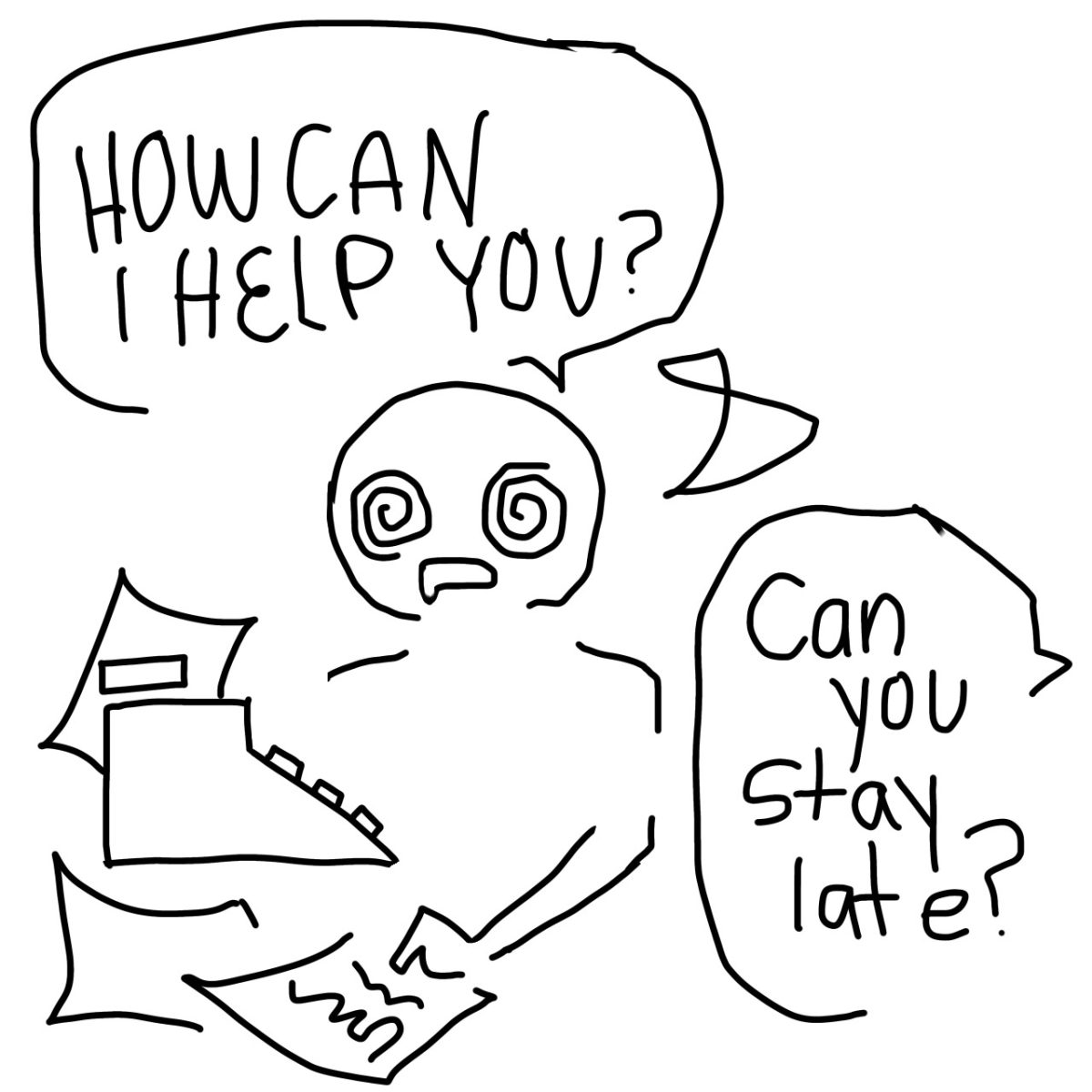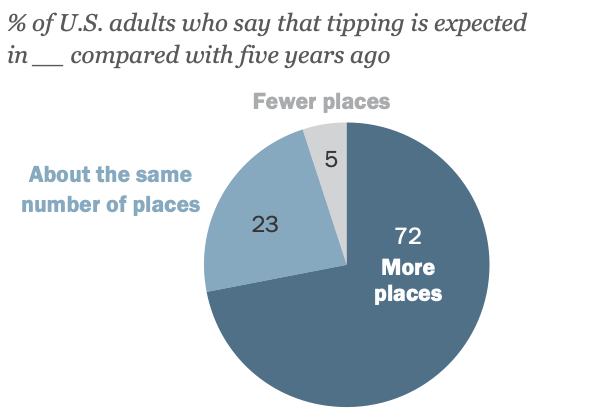Throughout my life, a common belief I’ve seen amongst many (and once held myself) is that effort equals result and that the harder you work, the more success you will ultimately have. Not only have I found this sentiment to be false, I consider it to be blatantly and unapologetically classist, especially regarding education. In this country, economic status directly controls not only your success in education, but also the success you will have for the rest of your life, and we need to stop pretending that it doesn’t. Poverty is an endless cycle far out of the control of the average high school student, and students whose families have money almost always get ahead.Hypothetically, let’s say that one of my classmates’ parents is paying for their college education. However, because my parents cannot afford to do this for me, I must take out loans in order to earn a college degree. Let’s say that this hypothetical student and I go to the same college, take identical classes, earn indistinguishable grades, and receive the same degree. However, in the end, who is going to be more successful—the recent college graduate with over $100k in debt or the debt-free one? We worked the same, so shouldn’t our opportunities be the same too? The answer is no. It is shameful that, in this country, two students can work exactly the same and have two significantly different outcomes, all because one student has familial wealth, a factor that they themselves had absolutely nothing to do with.
Nowadays, a college degree is held on such a high pedestal. Yet, for those from lower economic classes, is it worth accumulating hundreds of thousands of dollars of debt for a promise of salvation that isn’t guaranteed? One that vows to pull anyone up from poverty yet often fails to consider the reality of what that situation entails. College isn’t an accessible option for everyone, primarily only for the rich. What kind of country calls itself a land of opportunity when the opportunities are only for those who can afford them?
Yes, there are scholarships, grants, and an array of financial support options for less wealthy students. However, most of these are highly competitive and do not cover a complete college education, if even an entire semester. Additionally, to win, oftentimes, you must spend a fair amount of time on separate applications, all while maintaining a good GPA and extracurricular resume for said scholarships even to be considered.
Even the path to a college education is interwoven with classism. It is just a fact of life that some people have better opportunities available to them because they are rich. On pen and paper, it may appear that everyone has equal opportunities, but let’s look deeper into this—for example, an extracurricular activity like a club or sport. Even if the supplies are provided, this involves extra time and dedication—who do you think has time for this? Certainly not the students who work up to 40 hours part-time after school.
My parents don’t pay for all of my expenses. If I want new clothes, I’m responsible for buying them. If the car is out of gas, that cost falls on me, considering I’m the one driving it. Cars are very draining on expenses and, in many communities that are not walkable and do not offer public transportation, they are practically necessary for survival. This premise is entirely foreign to so many high schoolers, which I understand. It’s easy to look at the world through the lens you were raised with, especially financially. However, this is not an excuse to ignore your own economic privilege.
A lot of classism is subtle and unintentional. Many students who choose not to take Advanced Placement tests are relentlessly questioned by their peers for this decision, peers whose parents will be paying the nearly $100 per test cost.
Everyone loves complaining about school-issued Chromebooks and how notoriously slow and worn-down they can become after excessive use. As a senior, my Chromebook has seen better days; in fact, as I’ve been typing this, it has refreshed numerous times due to connectivity issues. Due to complaints like these, many students opt to use personal computers instead. This is completely fine. However, the assumption that everyone else has this option is classist and out of touch. The number of times I have been asked how I deal with my Chromebook, why I continue to use it, and why I haven’t switched is so frequent and frustrating. Most high-end computers run upwards of thousands of dollars; neither my family nor I have this kind of money lying around waiting for use on lavish computers.
Classism’s impact in the classroom doesn’t stop here, either. The emergence of placing educational resources and programs behind paywalls is disgustingly classist. By putting knowledge behind subscriptions and fees, services like Quizlet and Kahoot (who proclaim themselves to be tools for learning) only seek to educate the rich as this will result in the most profit. The gatekeeping of education for profit is genuinely one of the worst things capitalism has created.
I consider myself to be an extremely fortunate person in regard to wealth. I have a safe home, food for every meal, and rarely do I worry profusely over my family’s finances. However, when I look at many of my peers, I can’t help but notice that, for many, this is not enough.
It’s hard to focus on improvement and success when you’ve been dealt a vastly different economic hand in life. Although, as a country, we love to pretend that hard work yields results regardless of any underlying factors, this is not true and never has been. It is far easier to succeed when the world has been handed to you. Think before you speak, think before you spend.
Categories:
Paying for Prestige
0
More to Discover
About the Contributor

Madeline Monthie, Features Editor and Social Media Manager
Madeline is a senior, and this is her third year on staff! She’s the features editor and social media manager. She joined the Norse Star because she loves writing and journalism, especially interviewing people and getting to know them and their stories. She’s in the National Honor Society, Key Club, and Student Senate. After high school, she’d like to major in English. Outside of school, she likes to read, hike, write, and listen to music.








